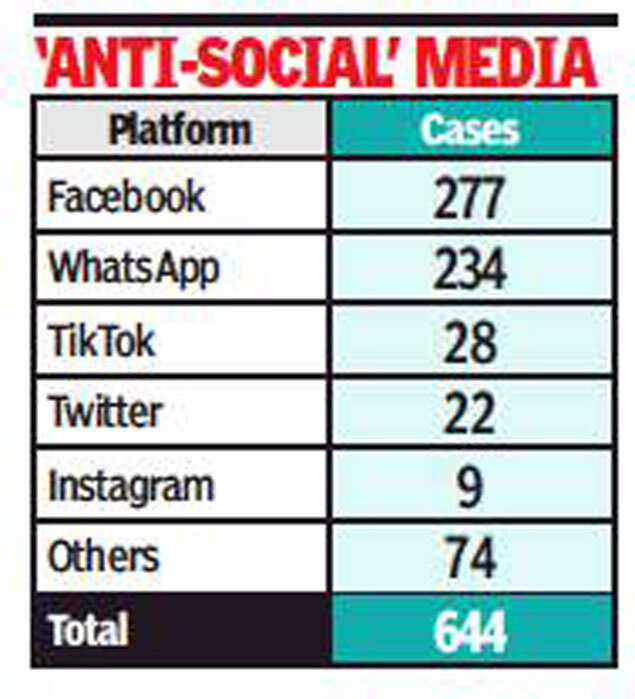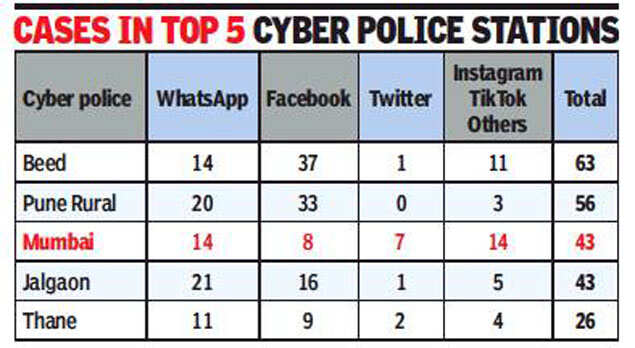
If the lockdown fuelled hate speech on social media, the state cyber police was not far behind in shutting it down. Cyber police have blocked at least 4,617 posts on platforms including WhatsApp and Facebook since fake news began flooding the internet following restrictions announced in March-end.
In all, 644 cases have been filed across 44 stations. Of the posts on which action has been initiated, the maximum are linked to fake news, hate and derogatory messaging.
The manner in which social media polarises society through the spread of hate speech and communal falsehoods is a clear and present threat to the stability of a diverse country such as India. The state’s police must be given more resources to tackle this menace, which may be far more sinister and subversive than many other forms of crime.TimesView

State (cyber) superintendent of police Balsing Rajput said, “When lockdown started, there was a flood of fake news and rumours on Covid-19. A month later, we began encountering extreme hate speech on social media. They were being transmitted to instigate people.”
For cyber police, the social dilemma manifests itself through a steady stream of fake and malicious posts that its team intercepts – an average of 22 a day. They range from rumours and defamatory references to hate speech.

In the six months since the lockdown, 44 cyber police stations across the state have arrested 303 suspects and named another 451 in cases where social media platforms were used to spread falsehoods. An additional 152 individuals were served notices under the Criminal Procedure Code. The maximum cases involve Facebook (277), and the worst offender is Beed district, among the most economically backward in the state.
State (cyber) superintendent of police Balsing Rajput said, “We have issued takedown notices to all concerned platforms of social media. So far 138 posts have been removed.” The head of the cyber force described the flow of fake news as a “wave”. “We are constantly monitoring messages available in public domain on various social media platforms to maintain law and order,” said Rajput.
Recently, the Central government filed an affidavit in the Supreme Court in a case involving a TV channel which was hauled up for airing hate news. The government argued that the digital space entails greater vigilance.
Citing reasons for the trend, cyber expert Ritesh Bhatia said work from home has spurred consumption of social media. TV news channels are also influencing viewers to take up issues on social media without fact-checking, he said.
Since the lockdown in March-end, 644 cases have been filed in Maharashtra for fake news, rumours and hate speech on social media. Of that, 580 are FIRs and 64 are non-cognizable (NC) offences.
More than half of them — 391 cases — are about hate speech. The other big category is rumours/fake news about the corona virus (133 cases); rest are cases of misinformation.
Cyber lawyer Prashant Mali said free time, frustration and depression coupled with lack of strict laws to tackle fake news and hate messages, especially the reading down of Section 66 (A) of IT Act, 2000, has crippled police.
Cyber lawyer Vicky Shah agreed saying deterrent measures were needed against online hate mongers including blocking social media handles and getting court orders to ban their internet usage.
Leave a Reply